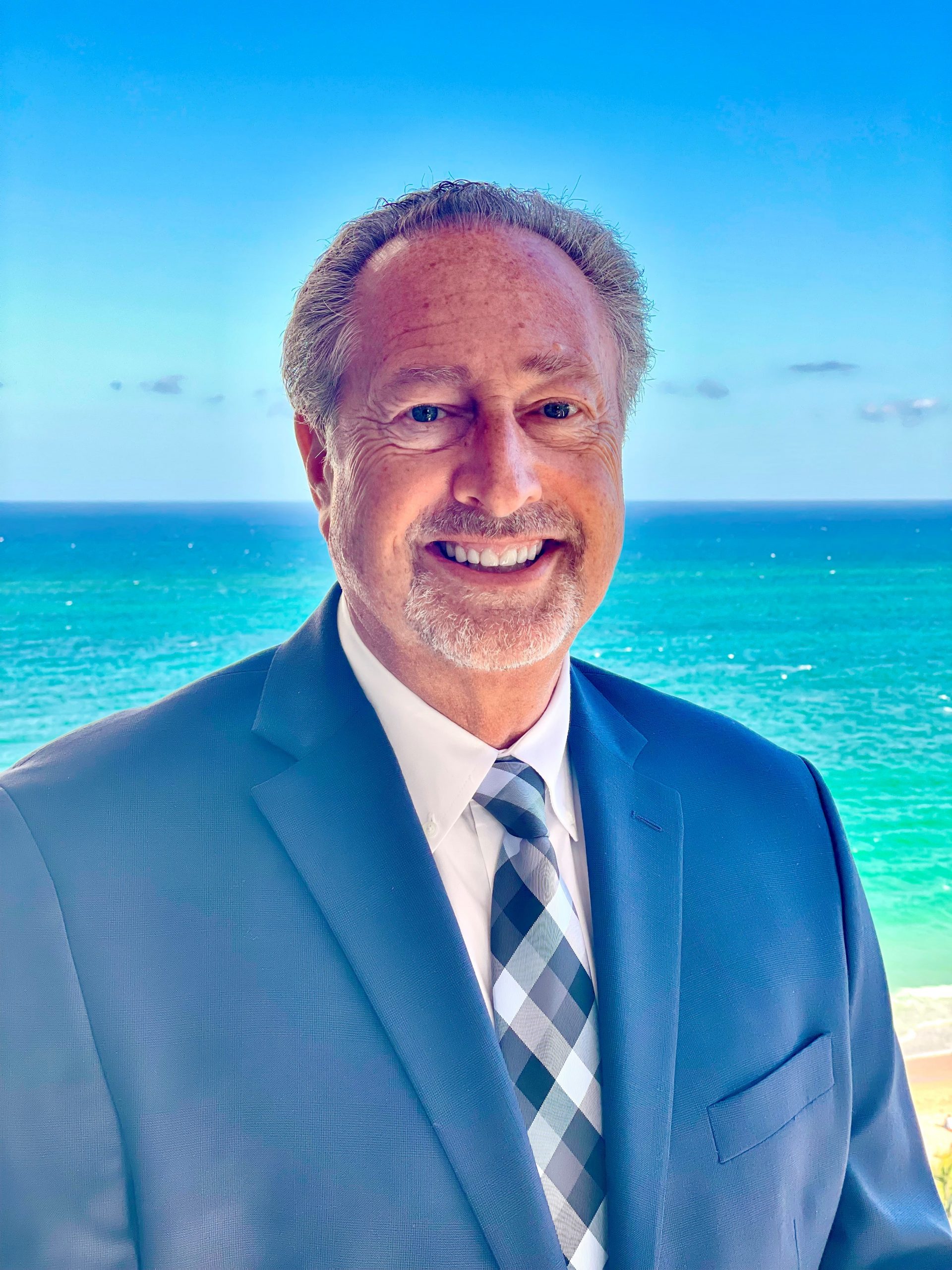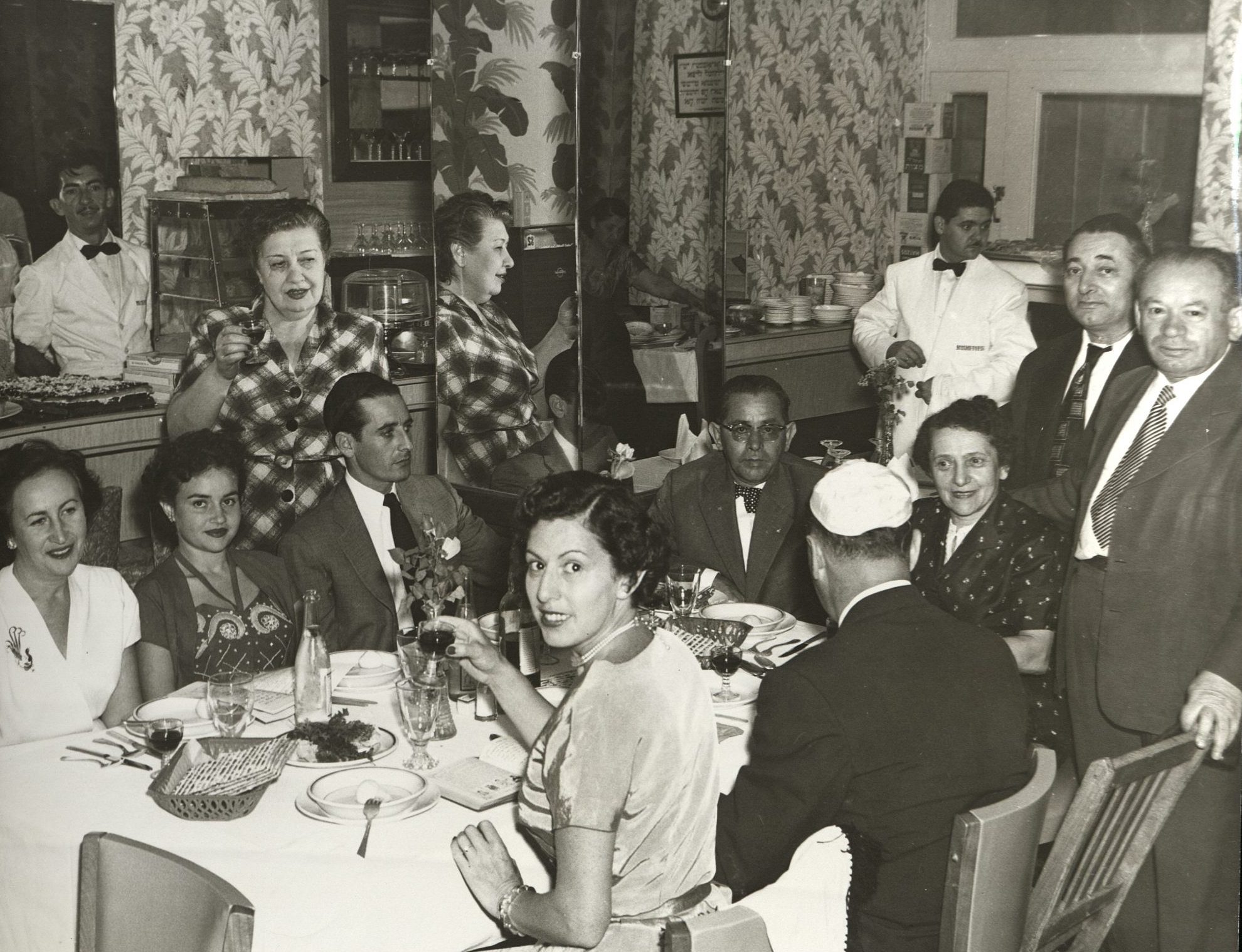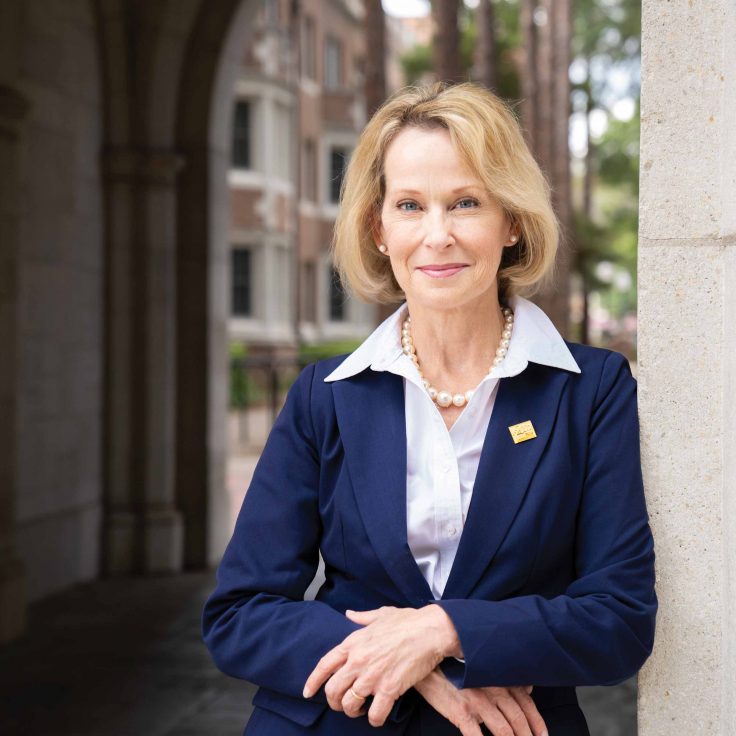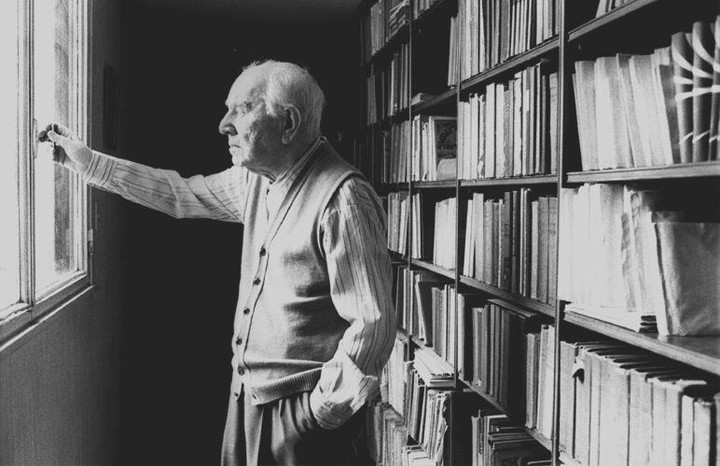
Gift positions UF as global leader in Latin American and Caribbean Jewish history
Bruce Greenberg gives back in a big way, ensuring the rich histories of centuries-old Jewish communities live on.
The story of the Jewish people is one of adaptation and resilience. It is a narrative that’s powerfully evident in the unlikely communities that still dot the isles of the Caribbean and Latin America today. Sand-floored synagogues and gravesites nestled at the feet of volcanoes stand as physical testaments to this spirit of tenacity, forming lasting imprints on the area’s collective history in ways that challenge and expand all we know – or think we know – about Jewish heritage.
Now, with the establishment of an endowed professorship to study Jews in Latin America and the Caribbean, the University of Florida is poised to lead a vital yet under-examined chapter of global history.

This initiative is made possible by a generous gift from Bruce Greenberg to the Bud Shorstein Center for Jewish Studies. A voracious scholar and advocate of Jewish education, Greenberg serves on numerous Jewish not-for-profit boards and educational committees across the country. He’s taken an active lead in the Jewish community his entire life.
“Bruce Greenberg’s generosity and vision enable us to explore unchartered territories of Jewish history,” said Interim Dean Mary Watt. “The Shorstein Center is already widely recognized for its scholarly excellence and impact, and this gift will put us on another level by building bridges between diverse Jewish communities worldwide.”
The newly established Bruce Greenberg Professorship in Judaism will support in-depth research, education, and cultural engagement, with a focus on elevating the Jewish experience in the Americas and preserving Jewish history and memory.
The professorship search will commence later this year, and a lecture series will be held throughout the fall surrounding the initiative. The center seeks a senior scholar with a robust research profile, a passion for celebrating Jewish history, and a desire to delve into Atlantic, Jewish and Caribbean history.
“I hope that the professorship produces tremendous scholarship and that the professor that holds this chair will represent my name and the university’s name with distinction, with the goal that UF becomes the jewel of Latin American and Caribbean studies in the country,” said Greenberg.
Norman J.W. Goda, director of the Shorstein Center, expressed his enthusiasm for the creation of the professorship and the work Greenberg’s gift will support.
“In terms of robust library resources, multiple scholars working different angles, and international connections, we’ll stand alone,” he said. “We have just added Raanan Rein, a very well-known scholar of the Jewish experience in South America. With Bruce Greenberg’s gift, almost overnight, we’ve become a national and international leader in the area of Jewish Latin American studies.”
Across Space and Time
The history of the Jewish diaspora in Latin America and the Caribbean is a relatively untapped field, although rich with themes of identity, expression and the search for belonging.
“This gift captures a real spirit of discovery, expanding knowledge and uncovering aspects of civilizations that should be at the heart of any university endeavor,” said Goda.
The bulk of academic research on Jewish history in the U.S. has focused on the European experience, says Goda, who attributes this to the impact of the Holocaust and the prevalence of scholars proficient in Central European languages like German. As a result, he explains, Jewish experiences in the Muslim world and the Southern Atlantic have not received as much scholarly attention.

Greenberg’s gift not only highlights the importance of revealing and safeguarding these narratives but also ensures the Shorstein Center takes a leading role in the cultural and historical exploration surrounding these topics.
“The Shorstein Center already has real strengths in Holocaust studies and a growing expertise in Israel studies, but Jews in the Americas writ large form a critical third pillar many Jewish studies programs currently overlook,” said Goda.
The University of Florida is an ideal place to lead this study, says Goda. Florida lies at a crossroads, with strong ties to the Caribbean and Latin America and a growing Jewish population from these regions. This demographic change, according to Goda, is altering the Jewish cultural landscape across the state, exposing a need to explore histories and experiences distinct from those of European Jews.
A Purposeful Path
Growing up in Brooklyn, Greenberg’s passion for Judaism stretches back to early childhood while in Jewish day school. He began tutoring other students by the age of 13, became a vice principal of a religious school by age 16, and taught bat and bar mitzvah classes to hundreds of students over multiple decades.
Greenberg’s commitment to Jewish education extended to his collegiate years at the University of Wisconsin-Madison. Although he wanted to pursue Jewish studies full-time, Greenberg’s parents encouraged him to study accounting and finance, ultimately earning his MBA.
“I’ve always had this internal battle, and in Judaism, we call it the “Issachar and Zebulun” struggle,” he said. “There were two tribes in Israel: one comprised of international businessmen, and the other of those who liked to stay in their tents and study. Academia always enticed me, but I knew that entering the business world was also an important thing to do.”
Still, Greenberg never strayed too far from his passion, juggling rigorous business classes with a teaching schedule in Madison’s religious school and Hebrew high school. There, Greenberg met Jack Kugelmass, former director of the Shorstein Center, who helped inspire Greenberg’s gift.
“It’s been a long, long time coming,” Greenberg said.
After moving down to Florida in 1997, Greenberg frequently traveled to islands like Curacao, St. Thomas, and Barbados on cruises with his family. While traveling, he would visit the local synagogues and cemeteries. Greenberg’s mind raced with questions: How did these Jewish families get there? Why did they venture all the way to the Caribbean?

Greenberg started investigating in his free time, tracing the Jews’ steps back across time and space. The story was rich with themes of international business, empires, trading and Jewish identity and family: all subjects that fascinated Greenberg.
Meanwhile, Greenberg built up a series of companies in the healthcare space, pulling many Jewish principles and ethics into his business practice. He founded Matrix Health Group, taking on the role of Chief Executive Officer. Then, after selling off his last company seven years ago, Greenberg faced an unexpected battle with cancer that prompted self-reflection.
“It got me thinking: Was my purpose really to be building businesses or was there another purpose for my existence?” he said.
With a newfound lease on life, Greenberg decided to be “a bit selfish” after years of working to help others. He retired, returning to school to finally pursue advanced degrees in Jewish studies, completing his master’s degree and soon, a doctoral degree from the Spertus Institute for Jewish Learning and Leadership.
Greenberg’s scholarly work bridges Jewish principles with modern family business practices, examining complex issues such as sibling rivalry, parental favoritism, inheritance and ethical governance. A forthcoming book will blend his business acumen with Jewish studies.
Greenberg now spends much of his time working with universities, collaborating with Jewish studies departments and building partnerships with Hillel organizations. As the father of six children, including UF Fisher School of Accounting alumnus Joshua Greenberg ’13, he is committed to creating an environment where his children can freely practice their Judaism.
Greenberg is excited about the opportunities the Shorstein Center professorship will open to students and faculty across campus, including the possibility of developing new courses that cross disciplines.
With a smile, he suggests that, given the allure of the Caribbean islands, future cruises could also be organized to allow students and faculty to do some study at sea. It might result in the same lifelong passion he discovered across the crystal waters.
“Whenever you can combine a vocation and an avocation, you’ll never work a day in your life,” he said.
Learn more about the Bud Shorstein Center for Jewish Studies.


